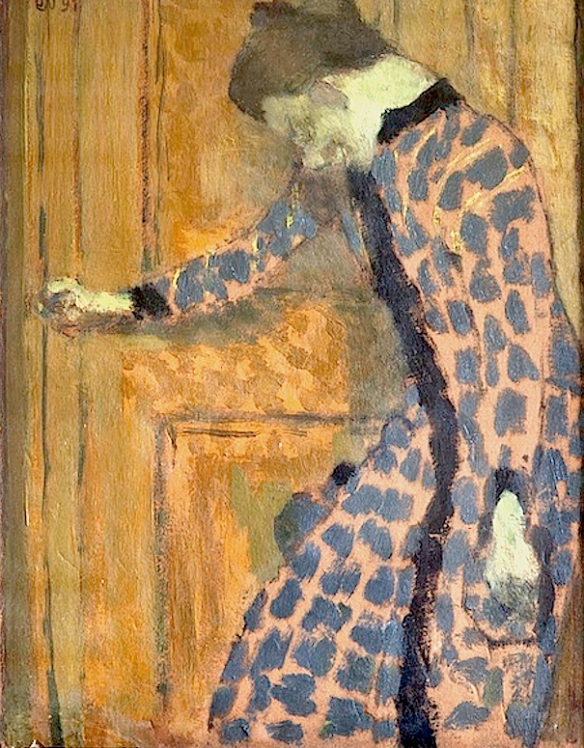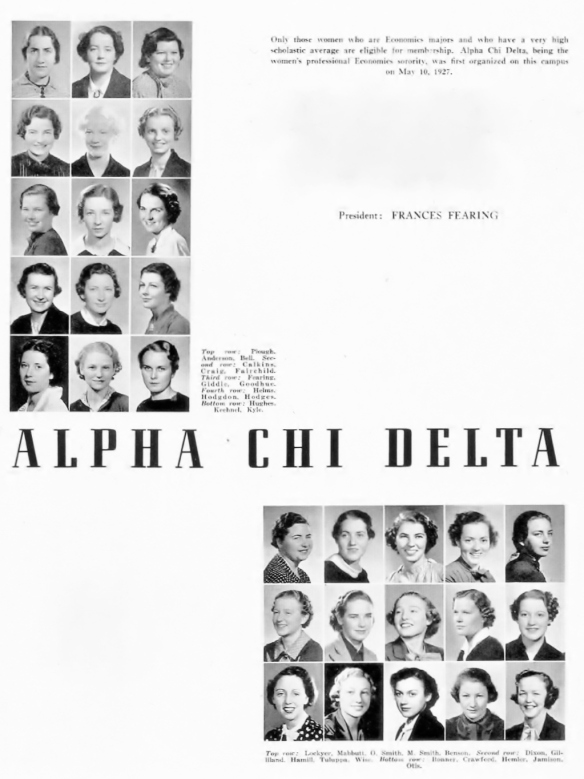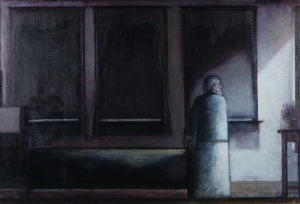
Every time I crossed her threshold, I knew was entering an alternate reality –Painting by Vuillard, 1891
Hallie, guess what? Natalie Cole visited the nursing home this week!
Oh, Mama, I don’t think so. I don’t think Natalie Cole was at your nursing home…
But she was! She is so beautiful. I almost told her I knew her father, but I didn’t want to bother her.
Oh, Mama…
In the early days, I tried to counter every offbeat comment with a careful, measured explanation. On issues large and small, I tried to steer my mother’s thinking.
And when that failed, I tried to prompt her words. I thought if I spoke calmly–slowly–rationally, I could put her mind on the right track.
I thought I could talk her back to reality.
Do you remember?
Do you understand?
Listen to me!
But I was the one who needed to listen.
I was the one who needed to understand.
During my first visit to the nursing home, she excitedly told me that she had been to lunch that week at UCLA, her alma mater. As she described her adventure, I interrupted:
No, Mama, you didn’t go to UCLA this week. It’s too far. You were here all week; you live here.
I did so go to UCLA!
No, you didn’t.
Hallie! How can you say I wasn’t there? I was with Kaye and Florence and Mary. We talked about where we would live next…
No, Mama, you were here.
I went to UCLA! I have a letter. My friends’ names are on the letterhead. I will show you the letter!
She was angry; agitated; combative.
And I was responsible.
I had transformed a happy conversation into a confused, volatile encounter. Even worse, I had ignored her most significant words;
her most revealing thought:
We talked about where we would live next.
If I had been truly listening, I would have realized that Kaye, Florence and Mary were friends from her college honors society. She had invoked a stellar academic achievement of her youth, as well as the blessing of her lifelong friends, at this critical juncture in her life.
As with many of her fantastical revelations, there was a core truth in my mother’s statements. I didn’t realize it then– but it was my job to parse her words; ponder her meaning; find her reality.
It was my job to listen.
The core truth: my mother needed to decide where to live next.
She needed to own this decision.
If she insisted she had discussed her dilemma at lunch–with her friends–on their beloved college campus–
what difference does it make?
If that imaginary lunch led to her very real decision, who cares?
She cared.
Years later, she enthusiastically grabbed her nurse’s hand and proclaimed:
You know, before I came here, I did careful research, and this is the very best place in Los Angeles.
Not one word of that sentence was true.
All of it was true.
I began to understand that every time I crossed the threshold of the nursing home, I entered an alternate reality
Hallie, Hallie, guess what? I am going to be honored by UCLA!
Really? UCLA is honoring you? What’s the occasion?
I am being honored for my contributions to the field of basketball! They must have read about me!
Oh, Mama, that’s wonderful! What will you wear?
During our decade of dementia, I could never becompletely sure about my mother’s fantasy world. I learned that unsettling truth just a few weeks after Natalie Cole’s purported visit.
I was reading the nursing home’s newsletter. The Resident of the Month turned out to be a songwriter.
(Wait…a songwriter?)
Not only was she a songwriter, but she was in the Songwriters Hall of Fame.
(oh no…)
My eyes glazed over as I read the next words. The Resident of the Month had written hit songs for several artists
(Oh Mama…)
among the artists
(I never should have doubted you)
the great
Natalie Cole.

My mother and her friends were deciding ‘where to live next’–The women of the UCLA honors economics sorority, 1937: –Only those women who are Economics majors and who have a very high scholastic average are eligible for membership…”
I am deeply saddened to learn of the death of Natalie Cole. I have made minor edits to this post, originally written three years ago. My mother had indeed met her father, Nat Cole, as she and my dad attended the Capitol Records annual Christmas gathering at the home of the company’s president in the early days of Capitol. My mom reported that Nat Cole used to play the piano and sing at these gatherings– a favorite Christmas memory, long before dementia imbued every memory with doubt.

